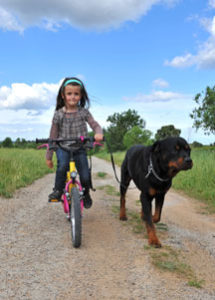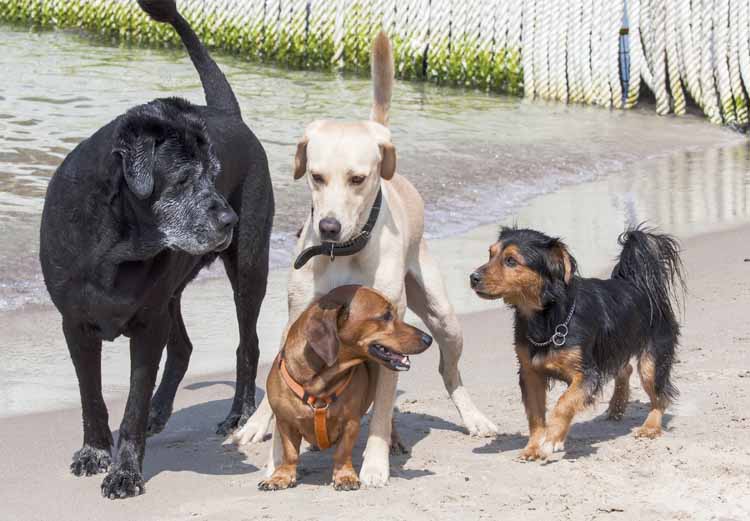Mutts vs. Purebreds
Which type of dog is better to have as a pet?

It’s the one question I get on a recurring basis: Is it better to adopt a mutt or buy a purebred? I fall directly on the side of mutts. I’m a longtime fan of their unique sizes, shapes and personalities. Most of all, I love their enduring spirits. Is this to say that purebreds don’t share the same traits? Absolutely not, and there isn’t a purebred alive I don’t love as well. However, when it comes to having a pet, I’ll always err on the side of the mutt.
That’s me, however. Let’s look at some research data on generalized dog preferences.
Temperament
While I believe that temperament is a direct result of nurture over nature, that debate is nearly impossible to prove one way or the other.
A study by Best Friends Animal Society in conjunction with the University of Pennsylvania School of Veterinary Medicine studied 6,000 dogs and discovered that those from pet stores are more likely to have behavioral problems than ones purchased from small breeders. The pet-store dogs also showed more aggression toward strangers and increased separation anxiety when left alone. Now, when I say “pet store dog,” I’m referring to “puppy mills” versus responsible small breeders who are breeding for conformation and behavior.
I also looked at the stats from the American Temperament Test Society (ATTS). The temperament of an animal relies ultimately on stress factors and its individual life conditions. Those in a shelter are naturally going to be in a higher level of stress. How they cope with that stress can make or break a dog. Any dog coming from a legitimate and reputable breeder will have fewer reasons to be stressed. A dog coming from a reputable rescue, who manages to come out of that unscathed, will have a pretty decent track record. It’s going to take a lot to shake up a dog like that in the future. I’m handing the temperament issue to the rescue dogs who make it out of rescue in one piece.
Mutts: 1 Purebred: 0
Genetic Disorders

A study by UC Davis showed that there was a prevalence of genetic disorders in both populations (rescue and bred): “Recently derived breeds or those from similar lineages appeared to be more susceptible to certain disorders that affect all closely related purebred dogs, whereas disorders with equal prevalence in the two populations suggested that those disorders represented more ancient mutations that are widely spread through the dog population.”
In layman’s terms, a dog is probably going to susceptible to genetic diseases of the breed he most resembles. That means my pointer-pit mix who mostly resembles a pointer is probably going to experience eye issues such as progressive retinal atrophy, as well as thyroid disease, epilepsy and allergies. Her littermate, who more closely resembles a bull terrier, is more likely to develop orthopedic diseases such as elbow dysplasia, luxating patella and osteochondritis, as well as thyroid disease and skin conditions.
I’ll call genetic issues a draw.
Mutts: 1 Purebred: 1
Infectious Disease
Dogs in large groups are naturally exposed to more disease, particularly if dogs are coming in and out every day. For this reason, they are more likely exposed than dogs in a reputable breeder’s kennel. Therefore, they will experience infectious disease more often than purebreds. However, my argument is that if they can overcome disease, they are light years ahead of purebreds in terms of immunity.
Statistically speaking, rescue dogs will contract more diseases that are infectious. However, that’s due to environment rather than breed. I’ll call this a draw.
Mutts: 1 Purebred: 1
Behavior Problems

Some people think purebred dogs have fewer behavioral problems, but I don’t believe that. Any dog raised in a group will become territorial over limited resources, just as any human in a group will become that way (assuming they want to survive).
A study by the CDC examined how many people died of dog-related attacks by breed. This is a difficult study because so many rescue animals are identified by one breed when they are actually a mix. That said, the results show that while “fatal attacks on humans appear to be a breed-specific problem (pit bull-type dogs and Rottweilers), other breeds may bite and cause fatalities at higher rates. Because of difficulties inherent in determining a dog’s breed with certainty, enforcement of breed-specific ordinances raises constitutional and practical issues. Fatal attacks represent a small proportion of dog bite injuries to humans and, therefore, should not be the primary factor driving public policy concerning dangerous dogs. Many practical alternatives to breed-specific ordinances exist and hold promise for prevention of dog bites.”
Again, I think this comes down to the “nature vs. nurture” argument. I’ll call it a draw.
Mutts: 1 Purebred: 1
Looks
I like individuality, especially in dogs. When I look at a purebred golden retriever, I know they are all different, but it’s hard to tell unless you live with them. I can look at two littermates and see completely different animals. As far as this goes, I’m favoring the rescue dogs. You might favor near-identical-looking animals, so you might rank it differently. However, I’m giving it to the rescues.
Mutts: 1 Purebred: 0
Ethical Issues
Puppy mills; need I say more? Rescuing a dog is the right thing to do. Period. The chance of you walking out of a rescue environment with a purebred dog (although you might not have her papers) is very high anyway. Why would you spend nearly twice as much money to buy a dog when there are so very many in immediate need of homes?
Mutts: 1 Purebred: 0
My final tally is this:
Mutts: 6 Purebred: 3
I think the mutts have it.
About the Author: Stacy Mantle is the founder of PetsWeekly.com and the bestselling author of “Shepherd’s Moon.” Learn more great tips for living with animals by visiting PetsWeekly.com or get to know a little more about the author at www.StacyMantle.com





